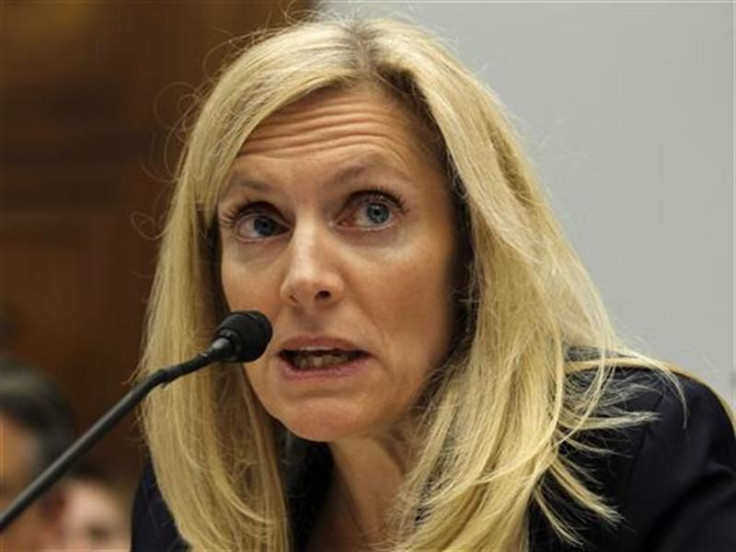Treasury Says Europe Needs Solid Debt Firewall

(Reuters) -- It is critical that Europe put up a convincing firewall against the risk of financial contagion from its debt crisis before more aid from the International Monetary Fund is discussed, a top Treasury Department official said on Wednesday.
Lael Brainard, Treasury's under secretary for international affairs, also said Greece and its lenders have made very significant commitments in recent days, which if they are met, will reduce Greek debt loads to levels that officials expect will avert default.
When you put these things together, they suggest that the path forward for Greece, if it is able to deliver on the commitments, will be a sustainable path, Brainard told a news conference.
Support from the United States, the biggest contributor to the IMF, for the Greek bailout is critical to prospects for getting more IMF money.
The G20 meeting in Mexico City on Saturday and Sunday is expected to be dominated by discussion of the ongoing efforts to deal with Europe's sovereign debt crisis. Some countries, especially in Europe, believe the IMF should play a larger role and should tap its members for more resources to do so.
But Brainard repeated that the Obama administration will not ask Congress for more funding for the IMF this year.
We believe that the IMF should continue to play a constructive role in Europe but IMF resources cannot be a substitute for a strong and credible firewall, she said. I am sure when the European response becomes clear, the G20 will be able to better assess IMF resources.
Brainard noted that European officials were due to meet in early March to consider the adequacy of its emergency fund. It is expected that they will then consider whether to increase its own funding against potential financial crises.
She said Europe's crisis was the foremost risk to a global recovery that remains fragile and vulnerable to shocks. But she noted that European banks had ample liquidity and were again able to borrow in markets, which has led to easier financial conditions.
The G20 meeting this weekend, which will be the first under Mexico's leadership, is also expected to be a forum for discussion about the risk from rising oil prices, Brainard said, adding that there would likely be some consideration given to how to avoid supply disruptions.
(Reporting by Glenn Somerville, Rachelle Younglai and Stella Dawson; Editing by Leslie Adler)
© Copyright Thomson Reuters {{Year}}. All rights reserved.





















